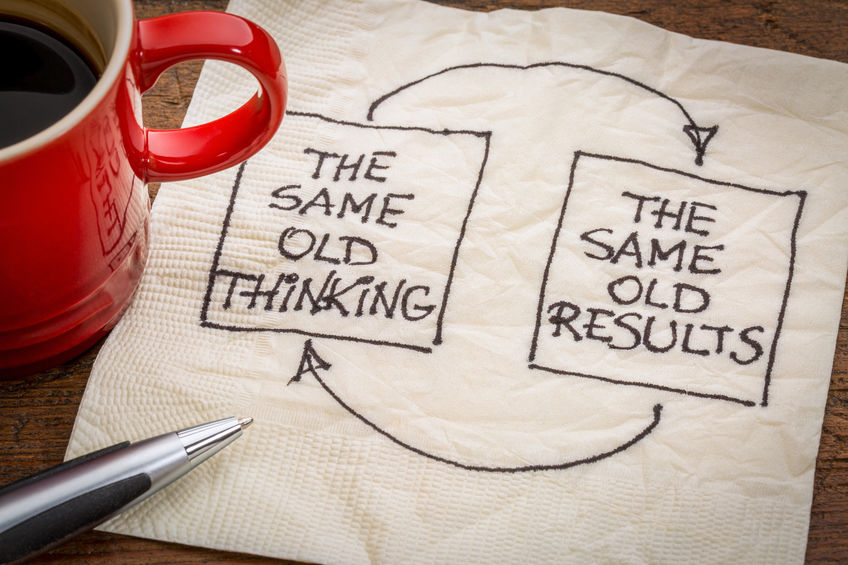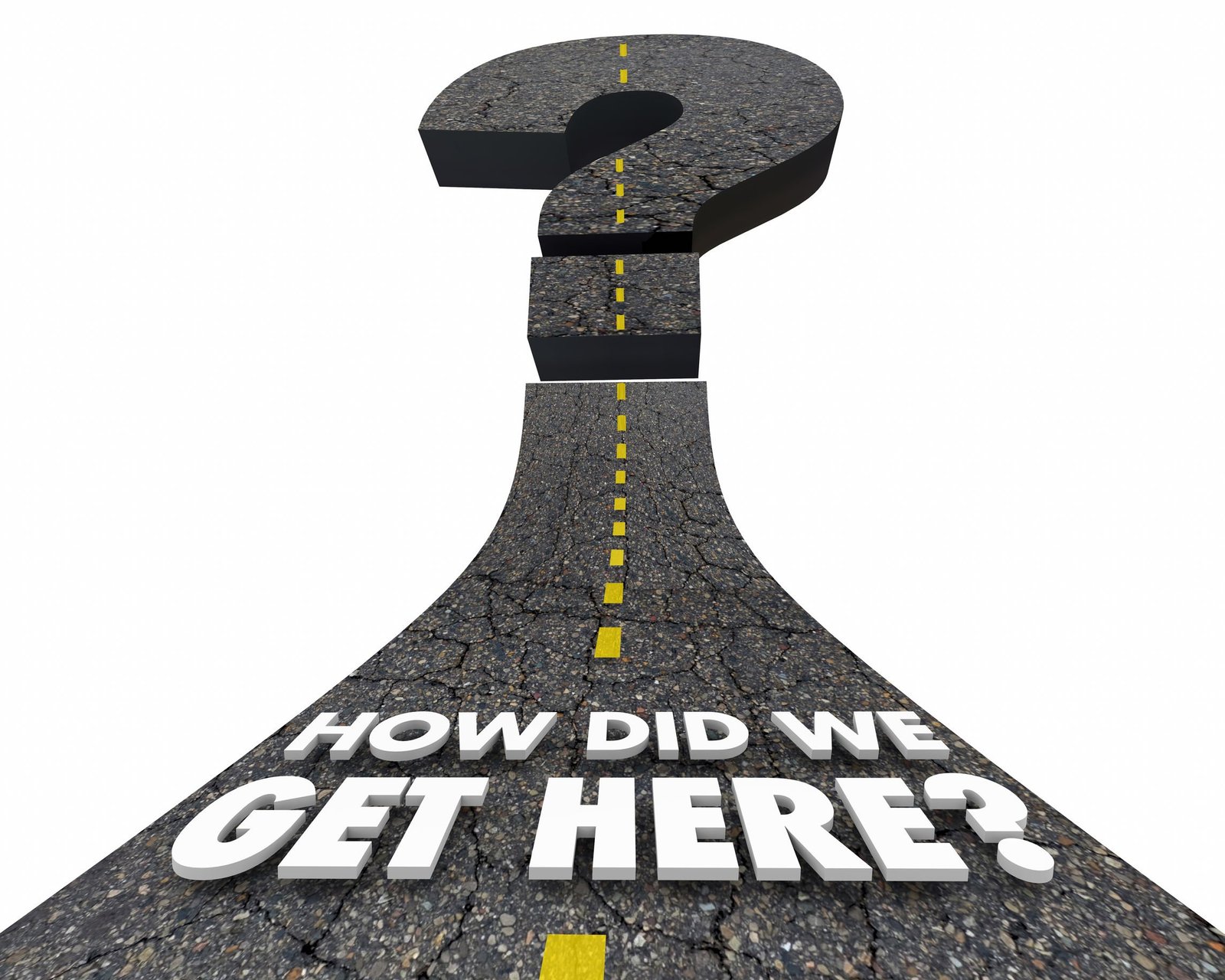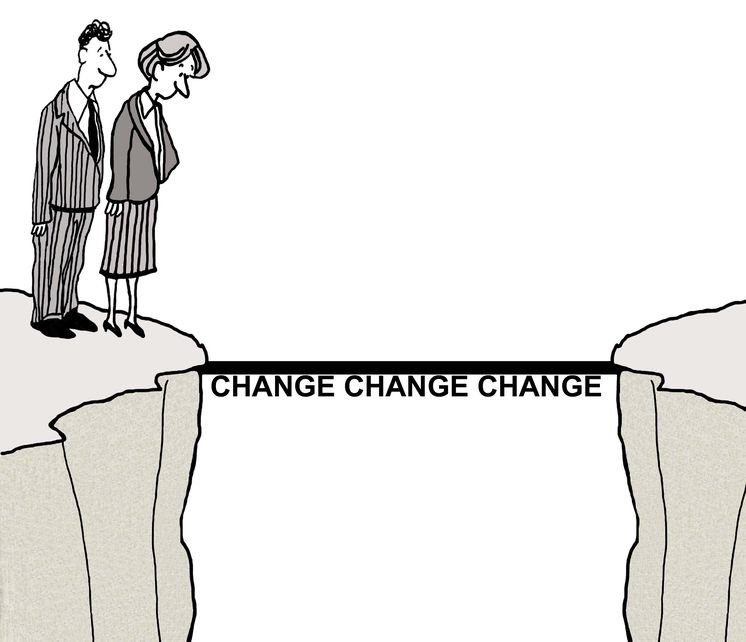
Kev, People hate their lives or a lot of different parts of their lives. For people who look at today and don’t want to be stuck there forever what should they do?
It’s often good to hire a consultant, someone who gets paid to cause you to do behaviors either through scheduling your world,giving you specific actions to take (and that means you know factually this person has a track record), have ONE FRIEND who understands your challenges, your past, your efforts, your weaknesses and strengths, and work with this person to help you leverage the right tools. Make sure you ask people to help you with their areas of expertise.
(Don’t ask me about how to fix a car.)
Ask people to help you make those changes and then recognize that things will take time so you want to record what you are DOING and then MEASURE the results. Do not expect today’s actions to pay off today or even next week. It takes time to have a baby. It often takes almost no time to make one.
Don’t simply piss and moan about unfair something is. Nothing in life is fair. Not taxes, not the government, not the law, not how people treat you when you don’t deserve it. It’s there. Live with it until you break free and you will break free as you break the chains which will take work. Do it UNTIL.
Get help. One person to begin with.
How long does it really take for a person to change? What do you see when change is present?

When change is present, real change you see irritated friends and families because change doesn’t happen in a vacuum, it happens in the context of friends and families who are not changing at the rate you are. So people are going to be upset with you and you might be surprised they don’t like the changes as much as you think they will. You were hoping they’d be proud and in the change process they probably won’t be.
You will feel stressed in change.
Example: You have a 9 – 5 job. You want to be an entrepreneur. That business with a great project and plan TODAY will take 9 – 12 months to begin to see fruit if you put in 1000 hours this year. That’s on top of your 9 – 5 and you do not want to leave your 9 -5 until you are stable in your 1000 hour (this year) project which will ideally become a long term project so you can leave 9 – 5. Other life changes are similar.
Relationships can end today but the myriad of interconnections between you and that person, friends, family, no one has the rules to make that happen so there will be lots of bumps. Big bumps.
Most things take longer than people are hoping. Get a great consultant it will happen faster. But always be real. Quality time in = Quality Result Out.
You always say that “behavior replicates.” It seems cynical to say this. Aren’t we simply assigning blame to other people for their failure inlife? Is everyone innately the same forever?
Not only do people’s current behaviors tend to replicate but their friends behaviors are replicated by you as well far more often than you would have without the influence (for better and worse). People CHANGE the person they live with, whether the changes are good or bad or both. Change is rarely fun, or easy. It’s work, and effort is required even when the status quo is a disaster.
Breaking chains takes time.
You should assume other’s behaviors will replicate until they CONVINCE you they won’t because of a list of things they are DOING, that have been MEASURED and that OBSTACLES have been calculated and that there is a good reason the plan will work.
You always say to change your environment and the people in it. This stress me out. You’ve spent a lot time in Poland and Bulgaria, you’ve lived there. What changes good or bad will you tell us about? What was it like for you to be the person who was new to the environment, especially in Bulgaria where you didn’t have the support you had in Poland?
I am just like you. I get stressed out in big change situations. One of the things that makes a big difference for me is a temperate and spacious living space. In need square feet (square meters) and I need a cool environment to work/live in. Fortunately I can make sure those things typically happen.
But when I go into the store in for groceries in Poland and all I see is food I can’t eat (pork, etc.) I do get uncomfortable. You revert back to survival mode (bring home the blueberries and other fruit!). You lose weight. Traveling to Poland is always good for my waistline. I eat the Jewish diet, if you will and it’s a catholic country. And because it matters, it’s a definite point of discomfort. But yes, I do have support in Poland I don’t have elsewhere Europe.
In Bulgaria, the store clerks weren’t always as kind as I’d like them to be and my Bulgarian/Russian skills amounted to about one word per day. After awhile I could read a sign or a few words as well as greet people, say thanks, goodbye. All of that is tough. I have a lot of empathy for people who come to the U.S. and think they know english only to discover they will understand half of what is said on average, if they are lucky.

My time in Eastern Europe and living a very, very different lifestyle was fascinating. It was typically uncomfortable and I have nothing but gratitude that I had a chance to do both. You learn a lot about yourself, your nation or citizenship vs. other countries and cultures. You begin to see a lot of good in your nation and a lot of bad that you didn’t see before. People also respect you more when they know you have “been around” and aren’t simply talking about circumstances from one kind of life.
If you want to grow, be better, you have to change your physical environment, the people in your environments, a person in your environment. Some things in your environment are very good for you long term. Others are bad for you long term. It’s not easy to measure who has what impact on you.
And you are right humans blame others for all kinds of things that happen to us and shape us as people. And that isn’t necessary. People are who they are and they are not likely to want to be changing at all. Remember as change happens to THEM stress happens to them AND YOU.
It’s not necessary to blame a person for the impact they have on you. You can simply begin to distance yourself from certain people and engage others.
I went through a massive search a few times in life for finding the right people to work with, live with, love with, you name it. And those relationships can go from fair to good and from great to poor over time. Sometimes there is “fault” and sometimes there is no fault. Ultimately it doesn’t matter. What matters is you will live once. You will have some people who attempt to cause you have a better (that is not the same as stress less) life. A better life is more reward, more fulfillment, more fascination.
But there’s no need to blame people. If necessary, as in a marriage, “I need to be with someone who wants to take me camping every weekend.” That’s fair. Probably should have talked about that on day one, but if you don’t or can’t do that and it’s a deal breaker then you break the deal. Life isn’t fair. Relationships aren’t fair. Circumstances do change. But blame, doesn’t have to enter into the picture and can be dismissed fairly quickly.
Dr. Hogan, in the webinar of 23.05.21 you mention that your rudeness (being a jerk) could cause another to treat you so badly they might just kill you. Were you exaggerating to make a point?
“Everything influences.” (KH)
Rudeness is being studied like never before. A paper will be published next month that reinforces how one specific bias (anchoring or “flagging”) occurs at a much more hidden but intense way than one might imagine. Here’s a quick release from the U of Md. that beautifully describes what I was talking about.
Have you ever been cut off in traffic by another driver, leaving you still seething miles later? Or been interrupted by a colleague in a meeting, and found yourself replaying the event in your head even after you’ve left work for the day? Minor rude events like this happen frequently, and you may be surprised by the magnitude of the effects they have on our decision-making and functioning. In fact, recent research co-authored by management professor Trevor Foulk at the University of Maryland’s Robert H. Smith School of Business suggests that in certain situations, incidental rudeness like this can be deadly.
In “Trapped by A First Hypothesis: How Rudeness Leads to Anchoring” forthcoming in the Journal of Applied Psychology, Foulk and co-authors Binyamin Cooper of Carnegie Mellon University, Christopher R. Giordano and Amir Erez of the University of Florida, Heather Reed of Envision Physician Services, and Kent B. Berg of Thomas Jefferson University Hospital looked at how experiencing rudeness amplifies the “anchoring bias.” The anchoring bias is the tendency to get fixated on one piece of information when making a decision (even if that piece of information is irrelevant).
For example, if someone asks, “Do you think the Mississippi River is shorter or longer than 500 miles?,” that suggestion of 500 miles can become an anchor that can influence how long you think the Mississippi River is. When it happens, it’s difficult to stray very far from that initial suggestion, says Foulk.
The anchoring bias can happen in a lot of different situations, but it’s very common in medical diagnoses and negotiations. “If you go into the doctor and say ‘I think I’m having a heart attack,’ that can become an anchor and the doctor may get fixated on that diagnosis, even if you’re just having indigestion,” Foulk explains. “If doctors don’t move off anchors enough, they’ll start treating the wrong thing.”
Because anchoring can happen in many scenarios, Foulk and his co-authors wanted to study more about the phenomenon and what factors exacerbate or mitigate it. They have been studying rudeness in the workplace for years and knew from previous studies that when people experience rudeness, it takes up a lot of their psychological resources and narrows their mindset. They suspected this might play a role in the anchoring effect.
To test their theory, the researchers ran a medical simulation with anesthesiology residents. The residents had to diagnose and treat the patient, and right before the simulation started, the participants were given an (incorrect) suggestion about the patient’s condition. This suggestion served as the anchor, but then throughout the exercise, the simulator provided feedback that the ailment was not the suggested diagnosis, but instead something else.
In some iterations, before the simulation started, the researchers had one doctor enter the room and act rudely toward another doctor in front of the residents.
“What we find is that when they experienced rudeness prior to the simulation starting, they kept on treating the wrong thing, even in the presence of consistent information that it was actually something else,” says Foulk. “They kept treating the anchor, even though they had plenty of reason to understand that the anchor diagnosis was not what the patient was suffering from.”
This effect was replicated across a variety of other tasks, including negotiations as well as general knowledge tasks. Across the different studies, the results were consistent — experiencing rudeness makes it more likely that a person will get anchored to the first suggestion they hear.
“Across the four studies, we find that both witnessed and directly-experienced rudeness seemed to have a similar effect,” says Foulk. “Basically, what we’re observing is a narrowing effect. Rudeness narrows your perspective, and that narrowed perspective makes anchoring more likely.”
In general, the anchoring tendency is usually not a big deal, says Foulk. “But when you’re in these important, critical decision-making domains — like medical diagnoses or big negotiations — interpersonal interactions really matter a lot. Minor things can stay on top of us in a way that we don’t realize.”
To provide additional insights into this phenomenon, the researchers also explored ways to counteract it. Rudeness makes you more likely to anchor because it narrows your perspective, so the researchers explored two tasks that have been shown to expand your perspective — perspective-taking and information elaboration.
Perspective-taking helps you expand your perspective by seeing the world from another person’s point of view, and information elaboration helps you see the situation from a wider perspective by thinking about it more broadly. Across their studies, the researchers found that both behaviors could counteract the effect of rudeness on anchoring.
While these interventions can help make rudeness less likely to anchor people, Foulk says these should be a last resort. The best remedy for the rudeness problem?
“In important domains, where people are making critical decisions, we really need to rethink the way we treat people,” he says. “We never really did allow aggressive behavior at work. But we’re fine with rudeness, and now we’re learning more and more that small insults are equally impactful on people’s performance.”
And it needs to stop, he says.
“We tend to underestimate the performance implications of interpersonal treatment. We hear ‘If you can’t stand the heat, get out of the kitchen.’ It’s almost like being able to tolerate people’s treatment of you is like a badge of honor. But the reality is that this bad treatment is having really deleterious effects on performance in domains that we care about — like medicine. It matters.”
This is the fourth paper in a string of Foulk’s research showing that rudeness negatively impacts medical performance, where the impacts can be much bigger — and much more dire — than the insults, he says.
“In simulations, we’re finding that mortality is increased by rudeness. People could be dying because somebody insulted the surgeon before they started operating.”
Binyamin Cooper, Christopher R. Giordano, Amir Erez, Trevor A. Foulk, Heather Reed, Kent B. Berg. Trapped by a first hypothesis: How rudeness leads to anchoring.. Journal of Applied Psychology, 2021
Kev, You said on the webinar that the world is becoming divided into conservative and liberal camps. What shocked me was that you said that these groups are disliking each other more than at any time in history and that they even shop at different stores and live in different places. Then Rick didn’t give you time to elaborate. Can you do that in your next Q and A.
25 years ago, U.S. urban voters (people who live in cities) identified themselves, 51% as liberals, 37% as conservatives. Today?

In 2021? 62% liberals make up the city and 31% conservatives come in a distant second. This is 2:1! First important item to note is that fewer people are independent/libertarian today. Conservatives have left the cities and there is no sign that this trend is stopping. This means of course that rural America should becoming more conservative and the numbers show that is true. 25 years ago rural America was evenly split 45% liberal, 44% conservative. No more. Today 54% of rural America is conservative and 37% is liberal.
The two groups don’t want to live near the other.
Let’s take a quick round of the world through conservative and liberal thinking, behaviors and how/where they mark their territory.
But it gets crazier. Liberals decorate their homes with art while conservatives are more inclined to have flags or clocks.
Clocks are REALLY important to conservatives. In this way I confess to being very, very conservative.
(For example: When I have an appointment with a client, the phone will ring at 1 PM. Not 1:07 PM. Not 12:53 PM. 1 PM. Most of my clients will apologize if they are more than a minute early or late. And if they are more than 10 minutes late, they know the chances I will take a call are only about a coin flip.)
The core personality trait of conservatives is conscientiousness. You work hard, keep your commitments. Liberals prefer to redistribute wealth. Almost always. Conservatives want to be able to keep what they have earned and determine freely how they will spend their money. Conservatives want education that teaches math, values and history. They like to keep track of things. Liberals prefer a new math model, a new history model, and well… new.
Conservatives are more likely to go to Dunkin Donuts and liberals to Starbucks. (I like them both with a slight nod to DD.)

Meanwhile liberals are open to new experiences whether it’s drugs or a new job. Good or bad, openness to new experience reduces self control and self regulation which all but guarantees the liberals ability to generate revenue on a long term basis is much smaller than a conservative. The liberal won’t work to make up the difference but they will write words on a sign, go to a rally somewhere and protest unfairness. A shocking amount of whining pre and post election by conservatives showed that fear is causing conservatives to emulate their counterparts. It’s a bit surprising and does reveal a desperation. (Carrying signs…really?) It appears that these images will match up in the minds of younger people and conservatives will move toward liberal values if their behavior continues to mirror liberal behaviors.
That predicts that conservatives are likely to be more in need of controlling uncertainty and that turns out to be the case. Similarly conservatives promote inequality (you don’t need minimum wage if you produce more value, you get paid more and less gets you less). Liberals would like everyone to work or not but all share equally in the pie whether they helped bake it or not.
Conservatives don’t like change. They repel things that make them afraid, they need order, are drawn to structure, decisiveness and closure.

Liberals as young children tend to be identified by their teachers as self-reliant, energetic, emotionally expressive, gregarious, and impulsive. By contrast, those children who later identified as conservative were seen as: rigid, inhibited, indecisive, fearful, and over controlled. These traits seem to be at least largely heritable and not simply cultural within a family or community.
For the purposes of persuasion in 2021, everyone is going to need to learn how to quickly distinguish between conservatives and liberals and learn to speak their language and understand their philosophy. Agreement is not critical. Understanding why people think and feel what they feel and handling those thoughts and feeling respectfully will lead the way to more effective communication.






















